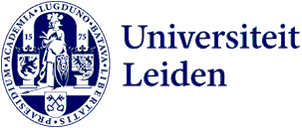
‘Building bridges between scientists: that's what we're good at’
Two directors. Both professors of mathematics, but one of them is a biologist. One comes, and the other goes. Roeland Merks will succeed Arjen Doelman as director of the Lorentz Center in September. What has been accomplished and what are the plans? And above all, what makes the Lorentz Center so unique?
How has outgoing director Arjen Doelman done over the past fourteen years?
Merks: ‘The Lorentz Center is the place where you can exchange ideas with a number of fellow scientists for a week. There are several workshop centres in the world, but the unique thing about the Lorentz Center is that it is versatile. Arjen accomplished that. It once started with workshops for Computer Science, Physics, Astronomy and Mathematics. Now we work together with many different disciplines.’
Doelman: ‘In 2009, I succeeded Wim van Saarloos. He was the one to open doors to other disciplines. I continued that, with the result that since 2016 really every scientific field is welcome here. Social sciences and humanities, but also medicine, for example. The example I always like to mention is a workshop we organised with Egyptology. And that is unique in the world, that we bring all these different fields of science together.’
Why is Roeland Merks a good successor?
Doelman: ‘Roeland is biologist but also mathematician, which makes him a fantastic successor. He is completely interdisciplinary, which is his strength. He is innovative as well. It was Roeland who set up our first online workshop during the COVID period. And hybrid workshops are still around, often people can participate just fine remotely. Although our strength is bringing people together physically.’
What’s so special about that?
Doelman: ‘The essence of a workshop centre is that people actually talk to each other. The classic example I always give is that during a Champions League final, also scientists watch soccer together. Then you all have a beer together and a little later it’s back to science, because that’s our hobby, of course. And that atmosphere, you only have that when you are together in one room.’
Merks: ‘It’s like a summer camp. The first day there’s a wine-and-cheese party. That’s really meant to break the ice.’
Doelman: ‘That’s the old name, it can’t be called that anymore! - Wide smile – We’ve been trying for years to call it the Welcome Reception. Well inclusive, alcohol is no longer a given, and cheese ... isn’t so healthy either, we now know.’
Merks: ‘A classical workshop at the Lorentz lasts a week. And that works well, although it’s not feasible for all disciplines. Medics, or people from outside academia, can’t always join for a whole week. So we are now also looking at forms other than five-day workshops. But it does work, this summer camp idea. The first days are for getting acquainted and getting started, and on Wednesday and Thursday it’s really a pressure cooker and the most beautiful things are created.’
Arjen, what are you going to do now?
Doelman: ‘I’m getting back to being scientist again. By the way, in recent years I have continued to combine my research with the tasks at the Lorentz Center, albeit in a modified form. I have
meanwhile secured a large European grant (an ERC Synergy Grant, ed.) and would like to do research full time again.’
Merks: ‘I admire that about you, that you’ve been able to combine it all. And that that possibly was also a motivation for me to apply. I too will continue to do research, although I will have to make choices.’
Doelman: ‘It’s unique that after a long, administrative career you can go back into research. This is possible because the Lorentz Center prefers a director who is also a researcher and knows the field well.’
What was your reason for applying, Roeland?
‘I really enjoy science and have been doing research for years with great passion. And yet I need a new challenge. Not just doing research in that small, specialised field, but contributing on a societal level, something with the role of science in society. And that’s where this position fits in very nicely.’
'Not only do I want to do specialist research, but also contribute at a societal level'
What are the plans for the future of the Lorentz Center?
Merks: ‘Continue to involve and enthuse all disciplines. And come up with new ways of working that suit the people and the times.’
Doelman: ‘If I may add to that? Building bridges between scientists, because that is what we are very good at. We also want to involve people outside science, policy makers for example. And we want to do Citizen Science, involve citizens in scientific research. We think that as a centre we can make an important contribution to that. And then Roeland is the right man, all this will soon be in very good hands with him.’
Merks: ‘It is important that we are at the centre of society. Contacts with policy makers, with industry, with science as the basis. In that context, the main ambition is to just keep organising very inspiring workshops.’
Text: Christi Waanders
Photo: Inge van Dijck
